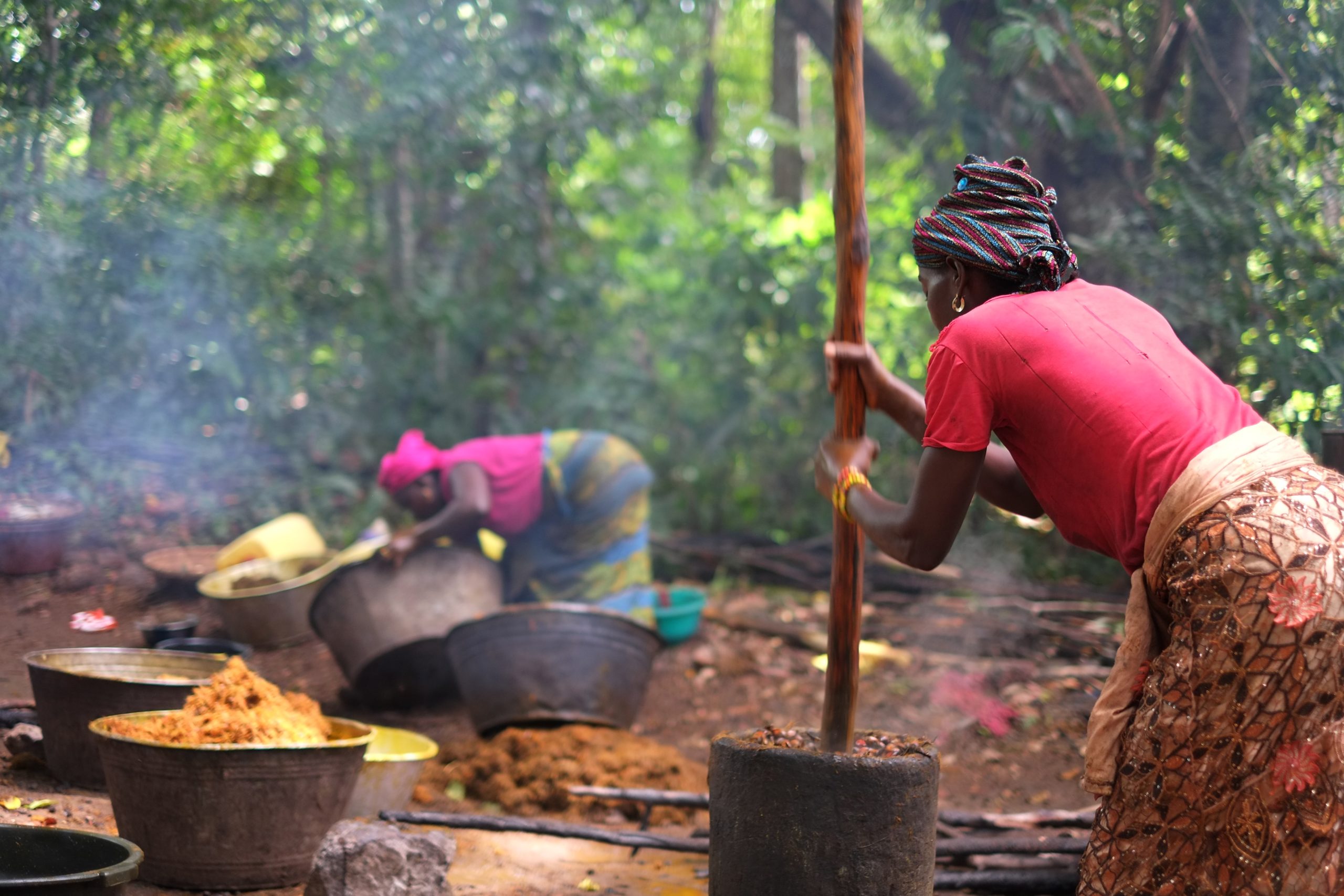A new report released by the Liberian and Dutch affiliates of Friends of the Earth accuses a palm oil producer operating in a remote part of Liberia of mistreating workers and rural villagers inside its concession area. It also says French and Dutch development banks have continued to provide the company with substantial financing despite the long-running allegations.
The report’s authors allege that the Maryland Oil Palm Plantation (MOPP), owned by the Ivoirian agribusiness group SIFCA, underpaid its employees, polluted local waterways with industrial runoff, and used Liberian police units to harass and assault villagers suspected of stealing palm fruit from the plantation.
“Multinational companies like this brand themselves as lifting communities out of poverty and supporting them to develop themselves, when in actuality they deepen their poverty,” said James Otto, a researcher with Liberia’s Sustainable Development Institute.
The report was said to have been based on interviews carried out in seven communities in Liberia’s Maryland county, near the border with Côte d’Ivoire, where MOPP operates its plantation. Parent company SIFCA is itself partially owned by the Singapore-based palm oil giant Wilmar, which reported a record $1.16 billion in profits in the first half of 2022.
According to the report, contract workers on the plantation said they were paid less than minimum wage, and if they failed to meet daily work goals set by the company their pay was withheld entirely. Villagers interviewed by the Sustainable Development Institute also said they lost income-generating cash crops when the plantation was developed, and that they had been misled into believing that an “outgrower” program would be established along with the core monoculture plantation, which would allow them to grow oil palm on their own land and sell the fruit to the company.
While SIFCA is not a member of the industry standard-setting body the Roundtable on Sustainable Palm Oil, Wilmar is, and in 2015 it made a high-profile commitment to implementing a “no deforestation” policy. Despite this policy, in recent years Wilmar has been criticized for purchasing palm oil from suppliers linked to deforestation and other environmental destruction. Friends of the Earth says SIFCA’s Liberian operations have led to palm oil runoff contaminating creeks and rivers that provide drinking water to villages near its plantation.
“Water sources that communities depend on have been polluted by waste that comes from factories, and not much has been done about it,” Otto said. “Even natural forests have been destroyed.”
Danielle van Oijen of Friends of the Earth Netherlands told Mongabay in an email that MOPP looks poised to further expand the boundaries of its plantation, despite its ongoing disputes with communities in the region.
“MOPP placed new cornerstones to indicate future locations of the expansion of their plantation and we fear that this will lead to more forest destruction. There is still some small areas of High Conservation Value and High Carbon Stock forest left in the area and that should be protected for biodiversity and to provide for communities’ needs. Also forest restoration needs to take place to compensate for the damage done,” van Oijen said.
Neither Wilmar nor SIFCA responded to emailed requests for comment on the report.
MOPP isn’t the first oil palm plantation in Liberia to come under fire from civil society organizations. Since the government of then-President Ellen Johnson-Sirleaf signed a series of major deals with foreign agribusiness companies between 2005 and 2011, conflict over land at plantation development sites has been a long-running saga in the country. After years of contentious and highly public advocacy campaigns, in 2018, a much-touted land reform package was signed into law by the current president, George Weah. The law requires foreign investors to come to an agreement with rural communities before operating on their customary land, but it wasn’t made retroactive. That has left people living inside preexisting concessions, like the one held by MOPP, bereft of its protections.
“There was an extensive debate about concessions,” said Ali Kaba, an expert in Liberian land tenure and current Ph.D. candidate at American University in Washington D.C. who was involved in the reform process. “The government did not budge. We tried to change it several times, but they said no, we’ve already signed these contracts and there’s no way we can undo them.”
Otto from the Sustainable Development Institute told Mongabay that the report illustrates problems that are inherent to the large-scale agribusiness model, which he described as having failed in Liberia.
“This current large-scale monoculture plantation model has to change,” he said. “To make it more sustainable, it has to be driven by communities. Maybe we shouldn’t even use the word plantation — we need community farms.”
Under Weah’s Administration, Palm Oil Plantation linked to Wilmar Abuses Liberian Workers






